Extending Research to Growers in the North Carolina Mountains
go.ncsu.edu/readext?987408
en Español / em Português
El inglés es el idioma de control de esta página. En la medida en que haya algún conflicto entre la traducción al inglés y la traducción, el inglés prevalece.
Al hacer clic en el enlace de traducción se activa un servicio de traducción gratuito para convertir la página al español. Al igual que con cualquier traducción por Internet, la conversión no es sensible al contexto y puede que no traduzca el texto en su significado original. NC State Extension no garantiza la exactitud del texto traducido. Por favor, tenga en cuenta que algunas aplicaciones y/o servicios pueden no funcionar como se espera cuando se traducen.
Português
Inglês é o idioma de controle desta página. Na medida que haja algum conflito entre o texto original em Inglês e a tradução, o Inglês prevalece.
Ao clicar no link de tradução, um serviço gratuito de tradução será ativado para converter a página para o Português. Como em qualquer tradução pela internet, a conversão não é sensivel ao contexto e pode não ocorrer a tradução para o significado orginal. O serviço de Extensão da Carolina do Norte (NC State Extension) não garante a exatidão do texto traduzido. Por favor, observe que algumas funções ou serviços podem não funcionar como esperado após a tradução.
English
English is the controlling language of this page. To the extent there is any conflict between the English text and the translation, English controls.
Clicking on the translation link activates a free translation service to convert the page to Spanish. As with any Internet translation, the conversion is not context-sensitive and may not translate the text to its original meaning. NC State Extension does not guarantee the accuracy of the translated text. Please note that some applications and/or services may not function as expected when translated.
Collapse ▲Alejandro Moreno eagerly walked up and down the rows of tomatoes at NC State’s Mountain Horticultural Crops Research and Extension Center (MHCREC) during a field day in August, checking out the many new varieties being grown.
Moreno’s family owns a 400-acre produce farm in Rutherford County. They grow tomatoes, peppers, eggplants, grapes — “A little bit of everything,” he said. The crops are sold locally at farmers markets and shipped up and down the East Coast, from Florida to New York.
It’s a competitive business. To remain attractive to buyers, and to stay profitable, growers are continually in search of crops with improved yield and disease resistance, along with quality taste and appearance.
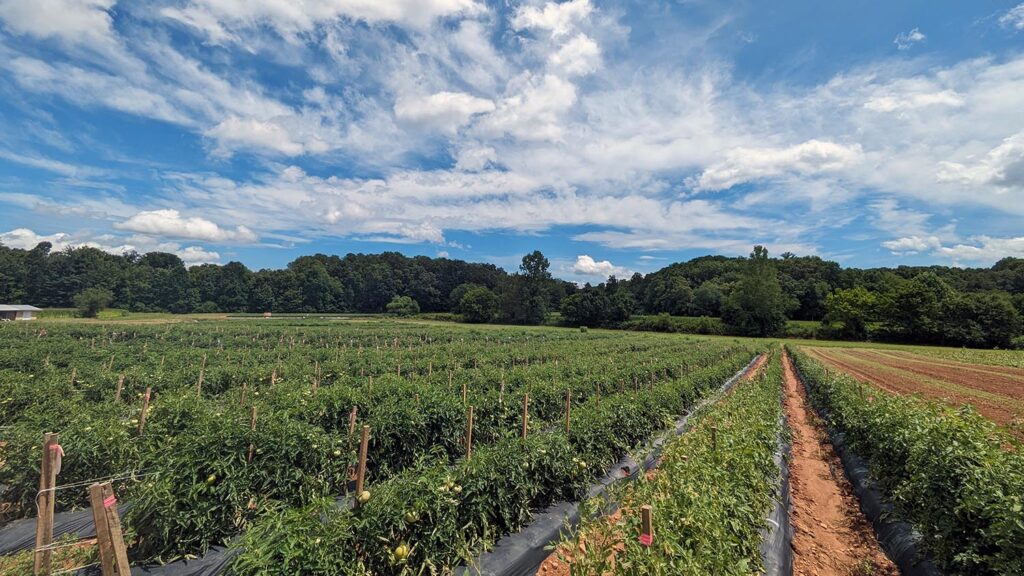
Research trials at MHCREC produce tomatoes with improved yield and disease resistance.
The MHCREC, located on nearly 400 acres outside Mills River, exists to help producers like Moreno. The agricultural research paradise in the lush North Carolina mountains is home to dozens of NC State Extension and research personnel who are dedicated to aiding farmers throughout the region.
View the 2023 MHCREC Impact Review
The station is recognized worldwide for its tomato breeding program, which has produced superior varieties with disease resistance, larger fruit size, higher quality and prolonged shelf life.
Field days are one way to directly connect research to growers. Producers can interact with MHCREC scientists and Extension experts and ask questions about promising new strains.
“We get to check out the new varieties and see what we can try out for next year,” Moreno said. “This year I like the Mountain Crown. I want to try them out for next year. They look pretty nice.”
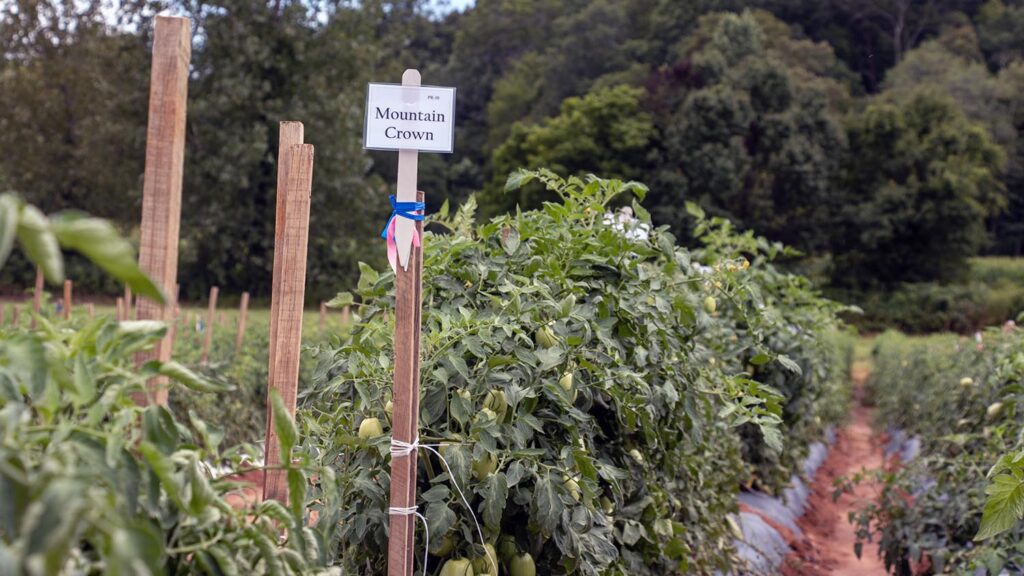
Tomato field trials at MHCREC.
MHCREC is one of 18 agricultural research stations across the state, operated in partnership between NC State and the North Carolina Department of Agriculture and Consumer Services (NCDA&CS). Scientists and students conduct research in real-world scenarios under natural conditions, testing varieties and methods to make farming more efficient, productive and profitable, and ultimately providing consumers with safe and affordable products.
MHCREC is located in the Southern Appalachians in the French Broad River basin at a base elevation of 2,069 feet. Its elevation, varied topography and climate are conducive to crop research specific to the region. With innovative efforts spread across diverse terrain, and within a half-day’s drive of half-a-dozen land-grant universities, the center is uniquely equipped to promote prosperity for farmers, businesses and communities throughout the region.
“The Mountain Horticultural Crops Research and Extension Center has a long and proud history of helping farmers in western North Carolina,” said Rich Bonanno, director of NC State Extension. “With dozens of Extension experts and researchers working in close collaboration, the center is well positioned to continue to drive economic prosperity for producers.”
Extension specialists, agronomists, horticulture scientists, entomologists and food safety and plant pathology experts work on a variety of commodities in laboratories, greenhouses and field studies.
Core research areas are tomatoes, apples and ornamental landscape crops. Additional efforts include vegetables, peaches, biofuel crops, corn, soybeans, and various specialty and alternative crops including hops and hemp.
MHCREC is a leader in apple research. Production, disease and insect management, and orchard management programs have helped North Carolina become No. 8 in the nation for apple production. North Carolina produces roughly 4 million bushels of apples in any given year. About 80% of them are grown in Henderson County, where the center is located.
Related: How Sweet It Is: North Carolina’s Apple Economy
Production of high-value specialty crops and organics are increasingly important as farmers strive to remain profitable. Through its lab, greenhouses and field trials at MHCREC, the Alternative Crops and Organics Program conducts research into hops breeding, native woodland medicinals and Chinese medicinal herbs, and floral (CBD) hemp studies.
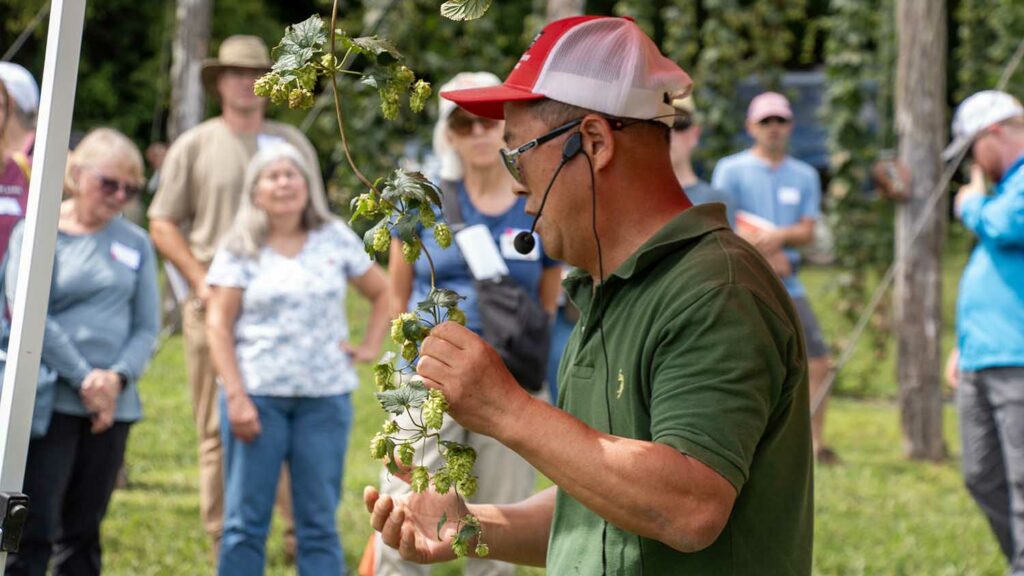
NC State Extension horticulture scientist Luping Qu gives an update on hops research during a field day at MHCREC in 2023.
After several years of breeding, North Carolina hops have become a viable crop with several strains producing a good yield and being used in area craft breweries, including Sierra Nevada, Wicked Weed, and Sideways Farm and Brewery.
Related: North Carolina Hops Are Happenin’
The nursery/greenhouse industries are a major source of crop income for North Carolina farmers. MHCREC researchers are focusing on development of new nursery crops with superior pest resistance, greater tolerance to environmental stresses and enhanced commercial potential.
The entomology research program led by Extension specialist Jim Walgenbach focuses on solving pest management problems for the tree fruit and vegetable industries in North Carolina’s Southern Appalachian and Piedmont regions.
Related: Helping Growers with Pest Problems
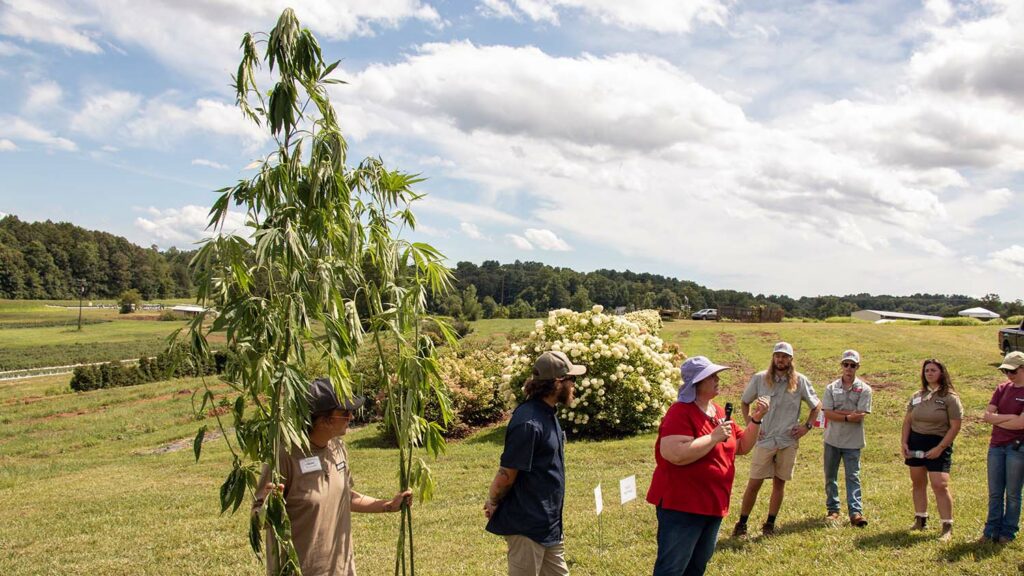
Hops is a focus of research by MHCREC personnel, including NC State Extension specialty crops specialist Jeanine Davis.
Faculty, staff and graduate students at the Mountain Crop Improvement (MCI) lab at MHCREC conduct applied research in plant science that results in the development of new and improved crops, technologies and sustainable production practices.
MHCREC extends knowledge directly through workshops, field days and tours for growers, NC State Extension Master GardenerSM volunteers, schools, professionals, businesses and the public.
The center is ideally positioned to collaborate with researchers stationed at NC State’s main campus and from other land-grant universities. It is located about 260 miles from Raleigh, and is within a four-hour drive to Clemson, Georgia, N.C. A&T, South Carolina State, Virginia Tech and the University of Tennessee.
“Some of NC State’s and Extension’s best and brightest people work at the Mountain Horticultural Crops Research and Extension Center,” Bonanno said. “We will continue to support and grow their programs, so they can continue to provide value to the people of the region and to North Carolina.”
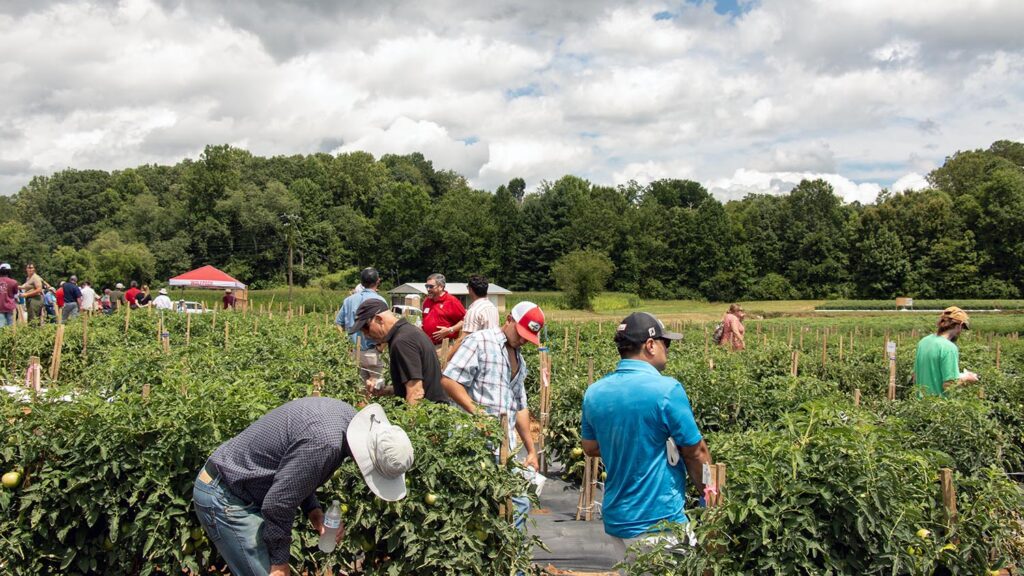
Producers inspect tomatoes growing on the vine at an MHCREC field day in 2023.

Garey Fox, dean of the College of Agriculture and Life Sciences at NC State, speaks at a field day at MHCREC in 2023.
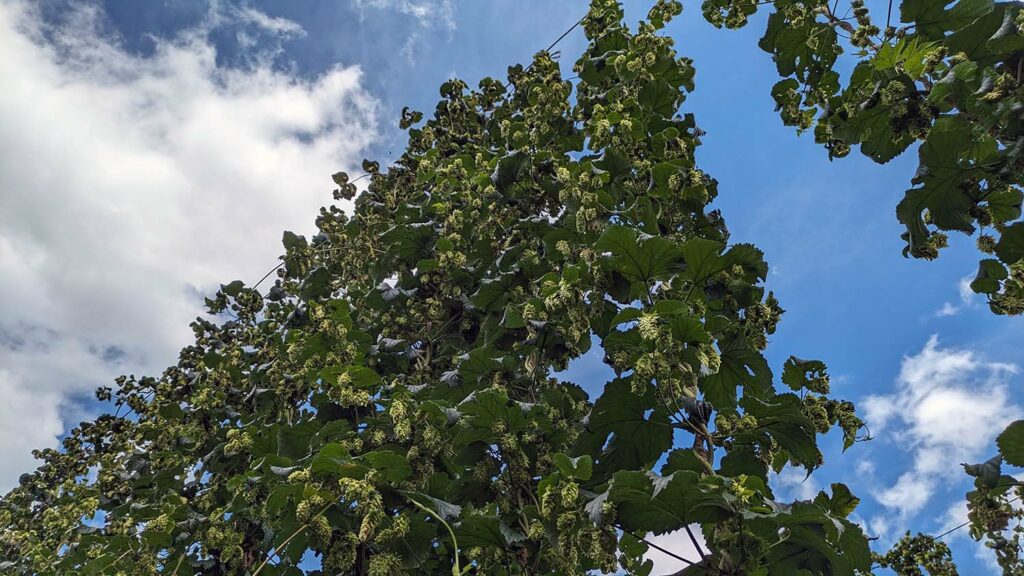
Thanks to the work of MHCREC researchers, hops have become a viable crop in North Carolina.
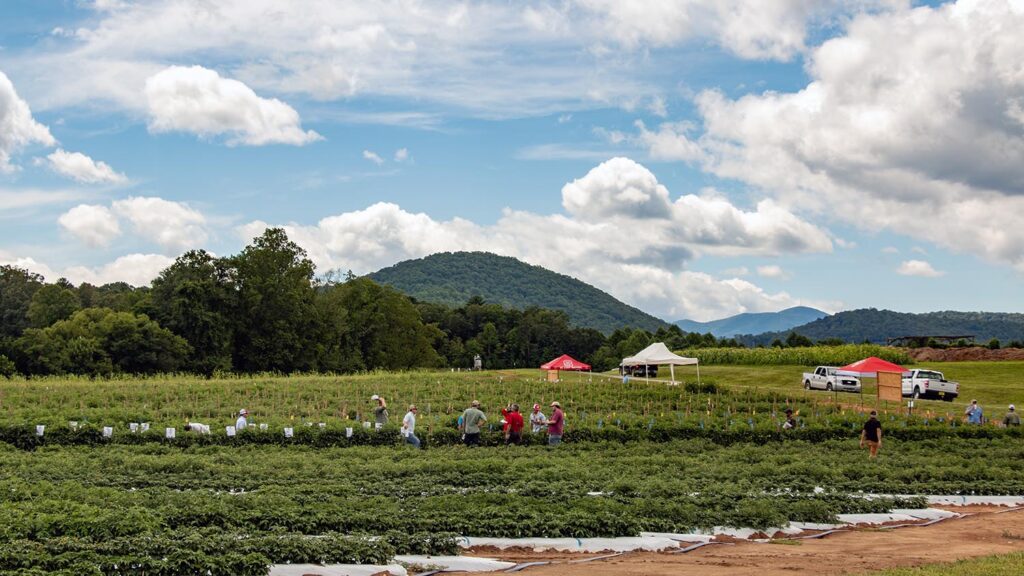
Producers interested in new tomato varieties received first-hand information from MHCREC researchers at a field day in 2023.
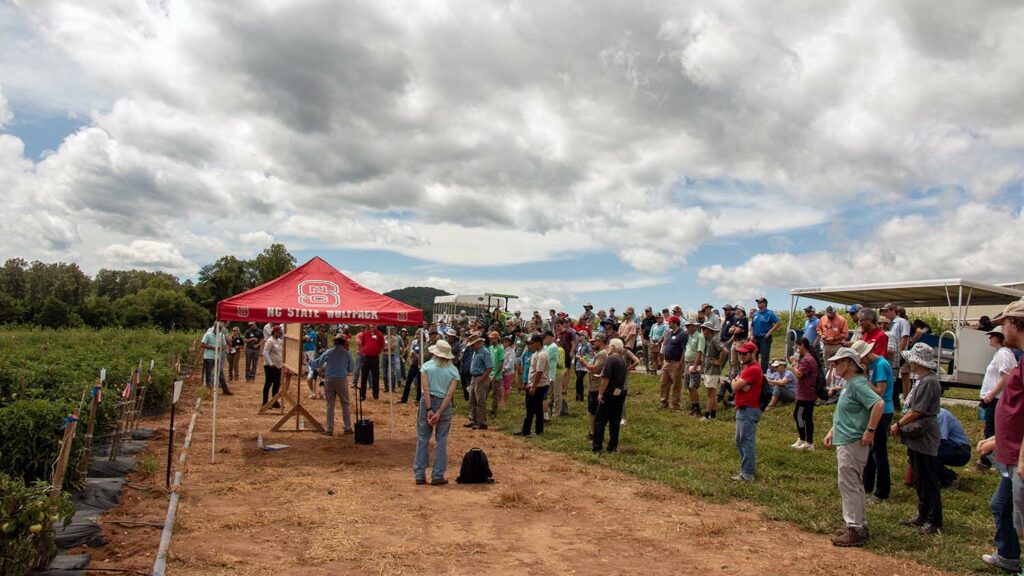
Information about tomato research draws a crowd at the MHCREC.
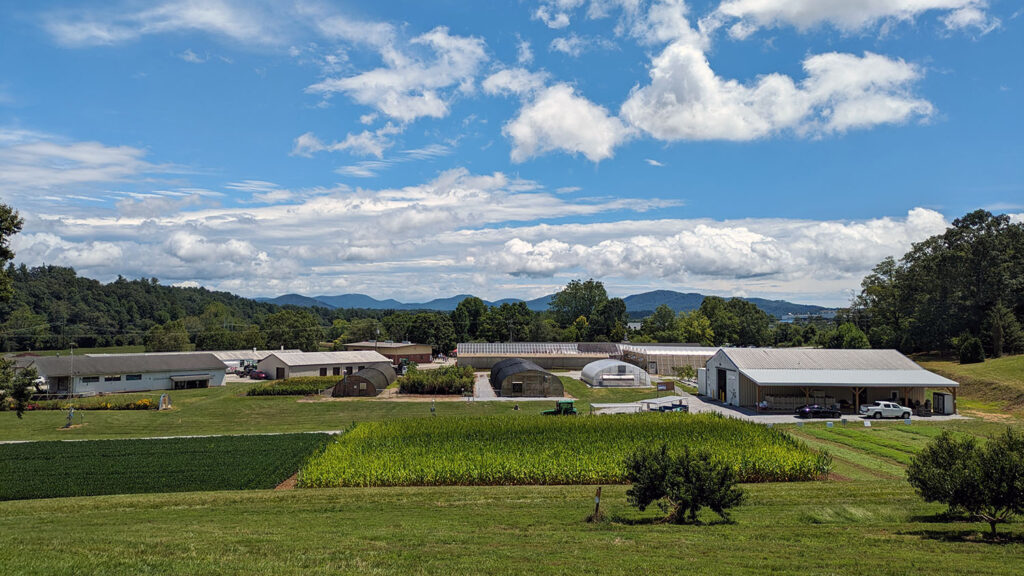
The Mountain Horticulture Crops Research and Extension Center (MHCREC) in the lush North Carolina mountains is home to dozens of NC State Extension and research personnel.

